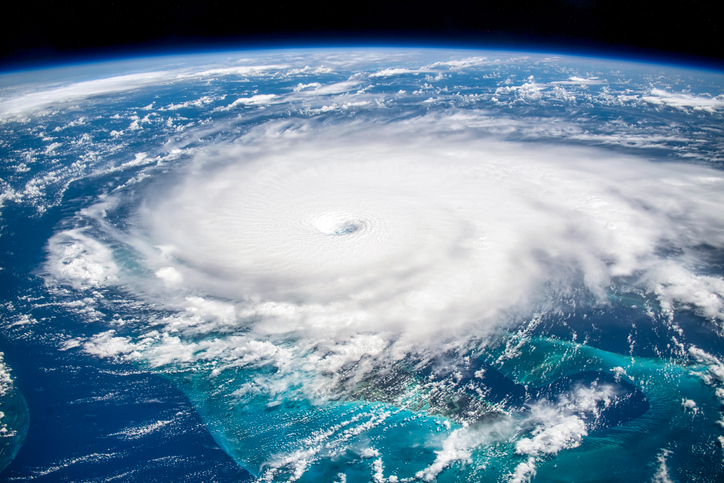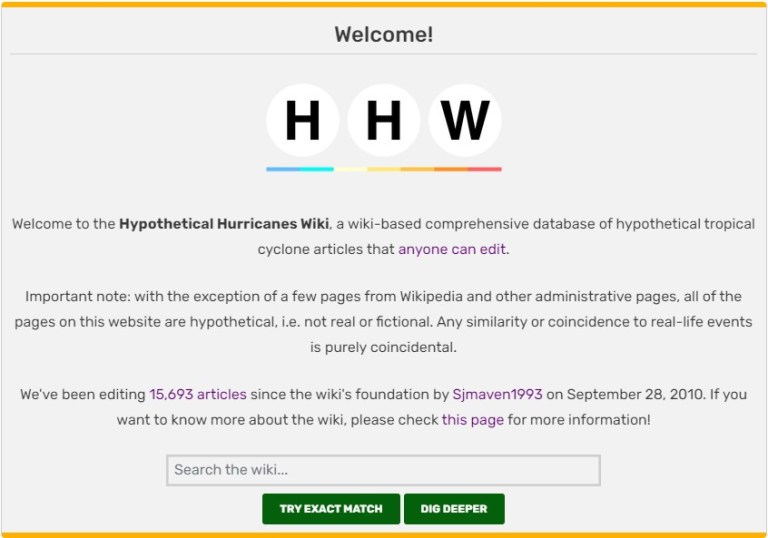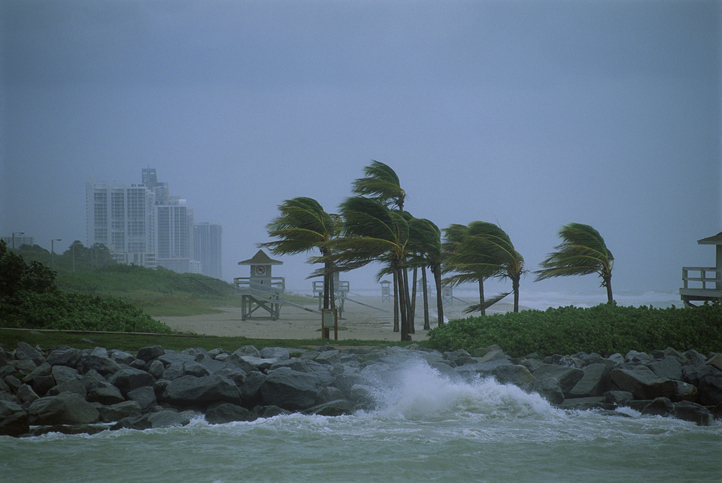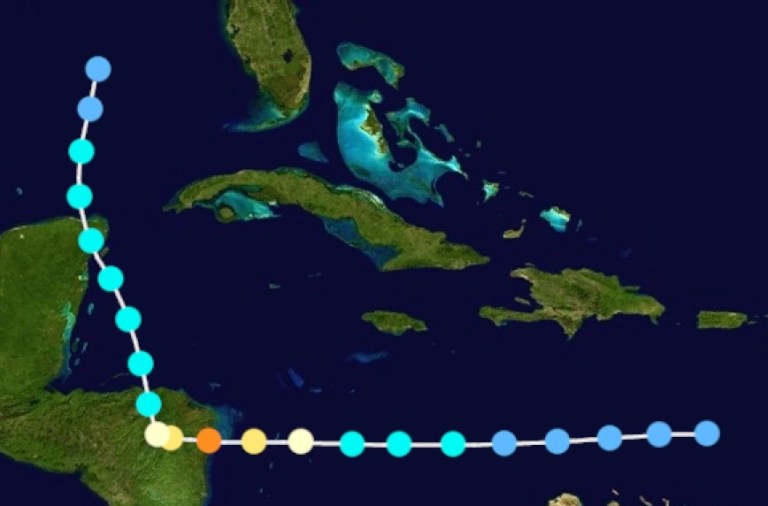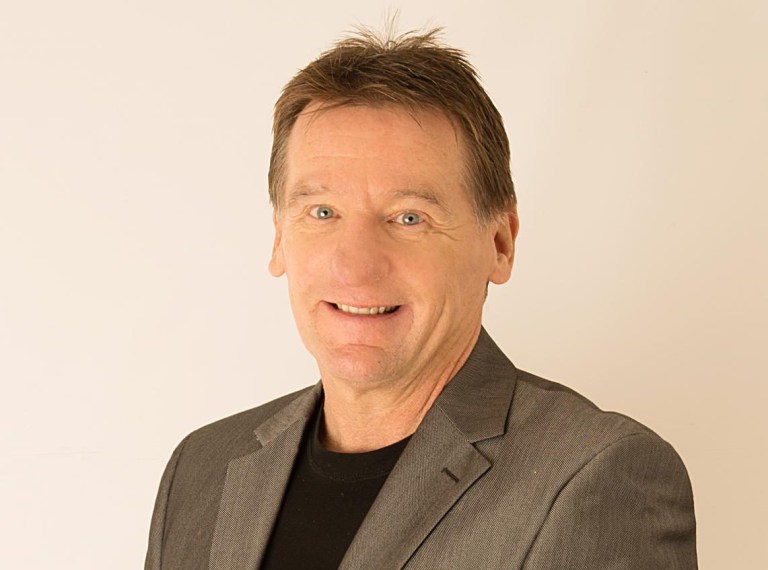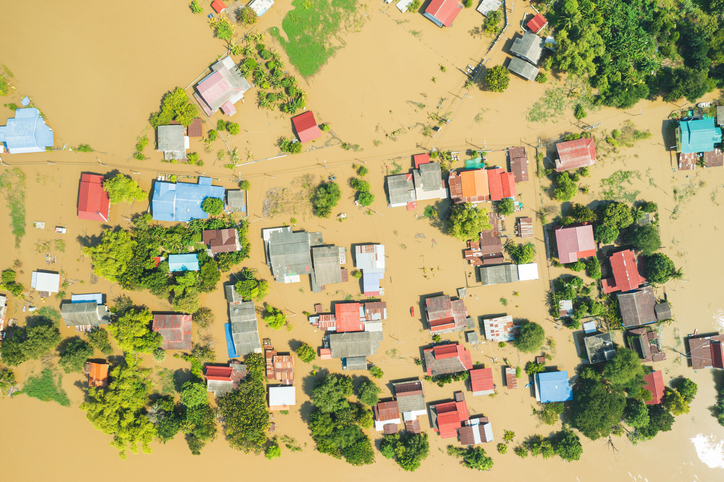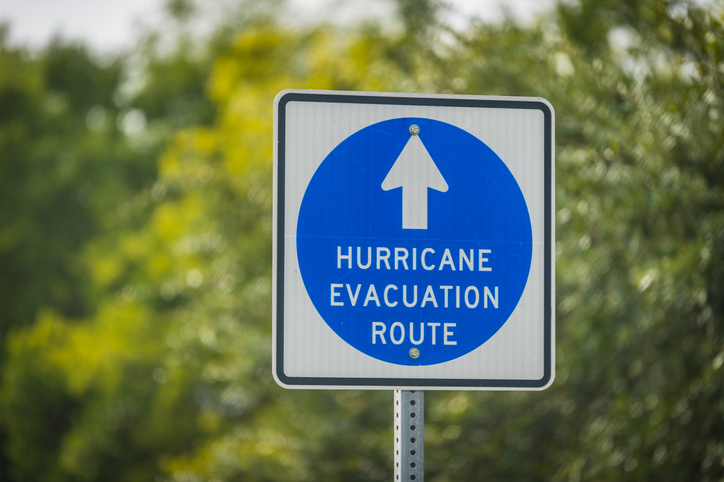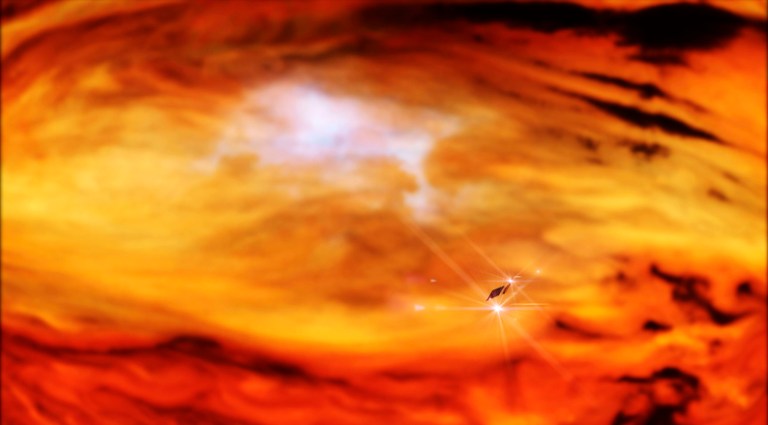It was 6am in Honduras when Tropical Storm Jose, hovering dangerously close to the coast, was officially declared a hurricane. Six hours later, as 110mph winds whipped the Caribbean Sea into a furious lather, it was upgraded to a Category 2 storm.
In another six hours, on the evening of July 31, Hurricane Jose reached Central America. It stalled over land, winds accelerating out of control, peaking at 135mph – now Category 4.
For 24 hours, the catastrophic superstorm wreaked devastation, focusing its inanimate ire on Honduras.
It was the deadliest hurricane of 2023. Almost 4,000 people died.
Except… they didn’t.
Hurricane Jose never made landfall. It wasn’t even a hurricane. The tropical storm formed over the Atlantic and stayed there, barely reaching a ‘measly’ 65mph before being engulfed by Storm Franklin.
So how did it end up being recorded as a deadly disaster? Welcome to the world of Hypothetical Hurricanes.
It is an online world, a wiki – sites developed and run by users – inhabited by storm fans and weather buffs who spend hours crafting and creating records of detailed and realistic hurricanes. The terminology is professional, the changing developments accurate. The death tolls often sky-high.
By internet standards this hurricane ‘fan fiction’ isn’t overly extreme, but it is still curious. For many of its members however, Hypothetical Hurricanes is not about destruction, but rather quite the opposite.
‘I enjoy it because I can be creative with my articles and it’s fun to let my imagination run free,’ 17-year-old Alex tells Metro.co.uk. ‘I enjoy writing, and it lets me write about something I’m interested in.’
As a former leader of the site, Alex understands why some gravitate towards the community.
‘It’s just for fun in the same way that poetry, music or other forms of writing are,’ she says. ‘As with many niche communities, a lot of our base is on the autistic spectrum, myself included, which probably explains why so many of us are so devoted to writing about fictional hurricanes of all things – we tend to get hooked on certain subjects and study them religiously.’
Fellow Wiki member Lars, also 17, agrees that creativity is the main attraction.
‘Personally, I find the idea of creating hypothetical storms to be a unique method of creative expression,’ he says. ‘As such, there isn’t exactly any “point” to it any more than there’s a “point” to drawing a picture or writing a fictional book – most people here, myself included, seem to do it for the fun of it rather than there being any end goal.
‘That said, however, there is a reason why we do this beyond “I want to make a Category 3 hit Bermuda“.
‘In the HHW community, there are three types of creator – those who make realistic storms/seasons, those who make semi-realistic storms/seasons, and those who make unrealistic storms/seasons.’
Looking through the site, the unrealistic storms are fairly easy to identify. They are filed under such kid-friendly and clearly fictional names as Bikini Bottom orMinecraft hurricane season.
Most would also be able to spot the North Pole hurricane season as being made up, with a basic understanding of how and where storms form.
But others, like Storm Jose, are not such obvious fakes. And although most hypothetical hurricanes are created in the future, eventually time catches up with them, which in the past, has caused more than a little confusion.
‘I remember a reporter from a Washington State-based newspaper thinking a storm with his name actually happened,’ says Felipe, a writer based in Brazil and one of the server’s admins.
‘He called us “fake news” when we explained it to him.
‘A meteorologist claimed the site was spreading false information because one of the wiki’s articles showed up in search before a storm’s actual Wikipedia article was written.’
Here in the UK, it seems we’re not so easily duped.
A Met Office spokesperson tells Metro.co.uk: ‘Our tropical cyclone expert is aware of this website, but we are not aware of it ever having caused any confusion about the difference between hypothetical and real hurricanes.’
Not all confusion online is accidental however. Jim Dale, a consultant meteorologist, fears HHW could be co-opted by those whose interest in the subject is less personal, more political.
‘I’m always happy to see people interested and engaged in meteorology, climatology and oceanography – it’s necessary now more than ever,’ he tells Metro.co.uk.
‘But on this particular issue, I think we have to be careful with those who may take a caustic interest in undermining what we know about climate change, even what we don’t know. By those, I mean climate deniers who may attempt to muddy the waters by posting spurious information [that could be mistaken or shared as fact].
‘However, for the majority of participants it’s either a bit of fun or better still, genuine scientifically based theories that may lead us towards a better understanding of where we are and what lies ahead.’
Since the ‘fake news’ incident, every HHW page now bears a banner to the top of every article to make clear the storms that follow are fictional.
So too are the deaths, but in a world ravaged by increasingly vicious and frequent storms, some feel there is something instinctively uncomfortable about imagining such detailed destruction.
This may explain that while a number of HHW users are happy to talk to Metro.co.uk about their hobby, few are willing to share any information beyond their username or first name.
However, many authors on the site are Gen Z, the generation whose lives will, so far, be the most affected by climate change. Maybe there’s something cathartic in preparing for the worst, or perhaps, like worriers through the ages, there’s a sense that by constantly imagining tragedies, you can somehow ward them off.
Lars first became interested in storms back in 2016, and has first-hand experience with wild weather.
‘At the time, I lived in Florida – I still do – and Hurricane Matthew was affecting us, as it passed just offshore of my city as a Category 3 hurricane,’ he says. ‘This was the first time a significant storm had come to me and I remember the TV in our house being set to the weather channel and watching as it updated, and just being fascinated with it.
‘That was what sparked my interest in meteorology and I’ve been interested in the subject ever since.
‘Admittedly, there is a bit of a moral question, given that hurricanes are destructive and can kill people, though none of it is real either – no one gets hurt from any of this since it’s fictional.
‘I’d personally compare it to people who write books about imaginary wars, alternate history, or who include fictional diseases in their books. So long as you don’t write about it in an obviously insensitive way, it’s a valid creative concept.’
Made up, it may be – but as far as hobbies go, it’s unusual to dream up such destruction.
‘It’s a strange one,’ says Dr Sandra Wheatley, a consultant for PotentPsychology.com. ‘There are enough storms and enough climate catastrophes without making them up.
‘My thoughts turn to whether they’re seeking glorification, to raise their profile, when they could genuinely approach various organisations trying to deal with climate change and do some real-world good.
‘I genuinely think it’s a little strange, and quite odd to create a global situation that results in thousands of people dying.
‘That is an alarm bell.
‘But maybe it is just for fun, and maybe we’re just taking it a bit too seriously.’
Certainly those who speak to Metro.co.uk see their work as an enjoyable, creative outlet – but it’s also more than that to some.
‘I first became interested in hurricanes in May 2015,’ says Dynah Baron, 17. ‘From there it developed into a full-blown hyperfixation. There’s also a weirdly therapeutic element to it, which is quite soothing.
‘I was abused as a kid and have PTSD, and being able to have a hobby like this is a good de-stressor. In addition, it also serves as something I could control, which is a thing that I’ve lacked throughout my life. It’s really nice.’
HHW users not only control the hurricanes they create, but also entire worlds. Alex, who became interested in the weather when she was eight, says she enjoys creating hyper-realistic hurricanes, along with seasons and storms on a fictional planet she created.
‘There is essentially no limit,’ she adds.
Like Alex, HHW fan Sierra arrived at the site with an interest in the weather – now and in the future.
‘It serves as a sort of look into what could happen in years to come,’ she explains to Metro.co.uk. ‘Most storms on the wiki are relatively realistic and could actually happen in real life, and I think it’s sort of cool to see realistic scenarios for the future.
‘This doesn’t apply to all hypothetical storms however, as many people make unrealistic articles with storms reaching winds of above 1,000mph.’
Saturn is the place to be for 1,000mph winds – not beyond the remit of HHW, but a force of unimaginable destruction if unleashed on Earth.
While the HHW community argues these imaginary calamities are harmless, hurricane survivors may disagree.
But in the era of offence, and the tightrope walk of intention versus impact, it may be hard to find anyone arguing that the young fans of Hypothetical Hurricanes have anything but innocent goals.
Take Fabian, for example, who joined the community during the pandemic.
‘It was the year 2020 and we were all bored in our houses, just wanting to do something,’ he says. ‘I enjoy it because it’s a friendly community. I have friends there I’ve known for years now.
‘The point of it is just for fun basically.’
MORE : Temperatures plummets to -6.4°C as country wakes up frost, ice and fog
MORE : Mystery of the ‘magic islands’ on Saturn’s moon Titan could be solved
MORE : Influencer drinks raw chicken smoothies for 25 days – and survives
Get your need-to-know
latest news, feel-good stories, analysis and more
This site is protected by reCAPTCHA and the Google Privacy Policy and Terms of Service apply.

